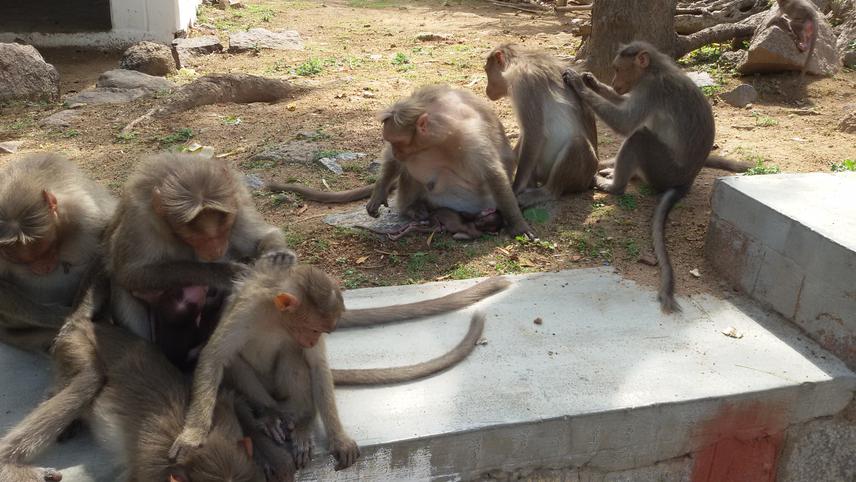Shanthala Kumar
The present study aims to provide baseline data on the prevalence of gastrointestinal parasites among bonnet macaques living in different habitats of varying degrees of exposure to humans and livestock, which will help, if they are relocated to the wild, in assessing the potential risk to other animals in the wild.

Across southern India, bonnet macaques are one of the most common commensal species, occurring in all possible human habitations, ranging from urban areas to agricultural fields. Bonnet macaques are considered as pests since they often raid and damage crops, causing significant economic loss to farmers. Furthermore, bonnet macaques also often take food directly from people in towns, temples and tourist sites, making them a menace across their natural range. Since, the intensity of damage caused by bonnet macaques is so severe in these habitats, local farmers often employ crude methods to capture and relocate them to distant forested areas outside of their normal range. Also due to high public and political pressure, the forest department often relocates bonnet macaques from towns, villages, temples and agriculture areas to the interior forests.
This is a quite regular practice particularly around the forests of the Western Ghats, an area that harbour many endemic and endangered species. Unusual deaths are reported in many indigenous mammal species from these forests, the reason for some of these deaths have been attributed to parasite infection and other diseases. One of the major sources of these infections is considered to be relocated commensal bonnet macaques. The present study aims to increase our knowledge of the endoparasite fauna, its prevalence and seasonal variation in bonnet macaque populations across different topographical, ecological and anthropogenic conditions. This knowledge will help in developing guidelines for the relocation of such monkeys paying special attention to preventing the transmission of parasite infections. This will also help in educating the relevant stakeholders about proper management practices of pest monkeys, guidelines for effective anti-parasitic treatment before relocation and selection of appropriate relocation sites.